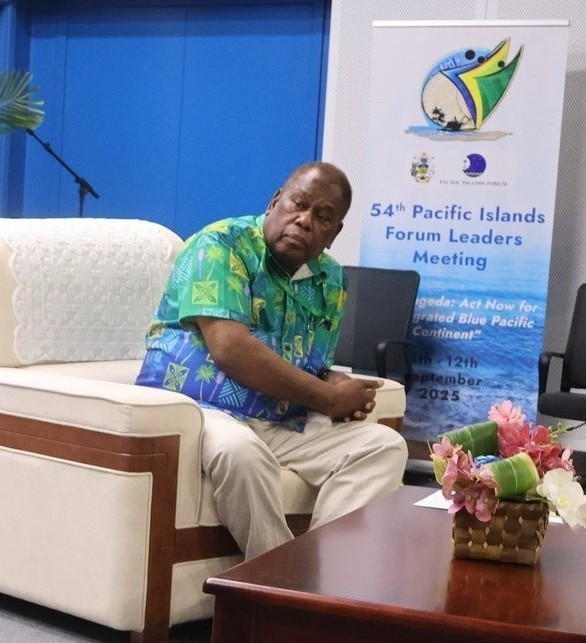
The Pacific Islands Forum has stepped up efforts to protect the region’s economies from the loss of Correspondent Banking Relations (CBR), a vital financial link that enables trade, remittances, and cross-border payments.
Former Central Bank of Solomon Islands Governor, Denton Rarawa, now Senior Adviser – Economics at the Forum Secretariat, said the withdrawal of international banks from the region has become a major risk.
“Correspondent banking is when local banks connect with international banks to trade, make cross-border payments, and receive funds,” Rarawa told Pacific journalists in Honiara.
“In the last decade, many global banks, especially in the U.S and Europe, have cut off these relationships,” he added.
“That means we face serious problems in trade and cross-border payments.”
He said the issue was presented to Forum Economic Ministers, who directed the Secretariat to find solutions.
A World Bank diagnostic study confirmed the severity of the problem and outlined recommendations, which led to the creation of a CBR Roadmap in 2024.
“We developed a CBR roadmap endorsed in 2024, and we are now implementing it.
“One of the key areas is collecting data to build a CBR resilience index.
“We’ve set up a derisking group and are gathering information from commercial banks, central banks, and other financial institutions across the region,” Rarawa said.
At the heart of this work is the Pacific Strengthening CBR Project, which currently covers eight countries — Fiji, Kiribati, Marshall Islands, Samoa, Solomon Islands, Tuvalu, Tonga, and Vanuatu.
Papua New Guinea is expected to join later this year or early next year.
“These countries have pooled about US$77 million through the World Bank’s International Development Association (IDA).
“Once PNG comes in, it will be around US$86 million. The project has two parts: a temporary emergency facility for any country that loses its CBR relationship, and work on a permanent Pacific Payment Mechanism,” Rarawa explained.
On the emergency facility, four international institutions — two UK banks, one French bank, and a Mauritius-based firm — have submitted bids to act as the region’s service provider.
For the permanent solution, a feasibility study on a Pacific Payment Mechanism is being prepared.
Fourteen firms initially expressed interest, with four shortlisted for the technical assessment.
Rarawa stressed that the project also seeks to include countries excluded from World Bank or IDA support, such as Cook Islands, Niue, Nauru, Palau, and the French territories.
“The idea is not to leave anyone behind. The World Bank has set up a trust fund and donors are contributing to cover those who are not World Bank members or not eligible for IDA financing,” he said.
The project is already underway, with a management team in place at the Forum Secretariat in Suva.
Recruitment has started for a CBR expert, anti-money laundering specialists, payments experts, and country coordinators.
“We already have coordinators in Fiji, Tonga, Samoa, and Vanuatu. The rest will follow. The idea is to have someone on the ground in each country working closely with our project management team in Suva,” Rarawa said.
The Pacific Payment Mechanism is expected to be a long-term safeguard, giving the region more control over essential banking and financial flows as global banks scale back. – by Pita Ligaiula of PACNEWS
